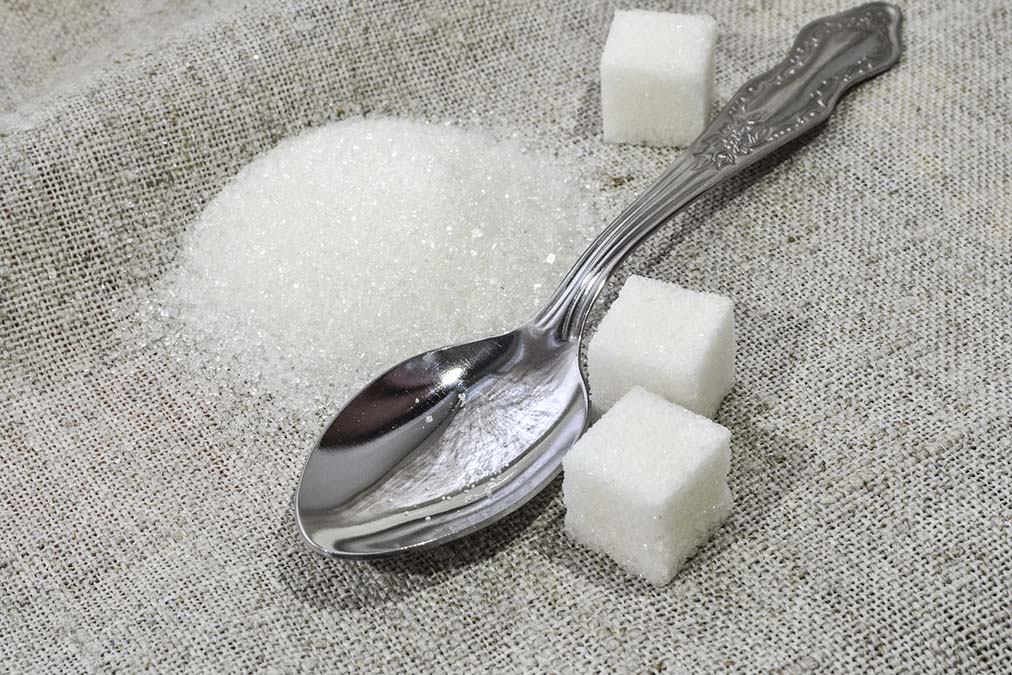 Every time we read “new” Alzheimer’s research, it’s just the same old thing. It focuses on the genetic factors and doesn’t tell us anything new.
Every time we read “new” Alzheimer’s research, it’s just the same old thing. It focuses on the genetic factors and doesn’t tell us anything new.
Little if any attention has been paid to the connection between Alzheimer’s and the lifestyle choices we make, especially diet ones.
But recent research from scientists from the University of Bath and King’s College has found one common ingredient that has been holding Alzheimer’s hostage and even helping it manifest.
Researchers examined samples of brain matter of people with and without Alzheimer’s to reveal the damage high blood sugar causes proteins and immune cells.
When sugar (or glucose) reaches your bloodstream, many of its molecules bind to protein molecules in a process called glycation.
Not only can glycation damage proteins, the byproducts of the glycation process like beta-amyloid that causes brain plaque buildup are also harmful. This suggests that too much dietary sugar contributes to Alzheimer’s.
But researchers also discovered another extremely harmful effect of glycation – at the onset of Alzheimer’s disease – it damages an enzyme called macrophage migration inhibitory factor (or MIF).
MIF enzymes are a part of your immune system. When abnormal proteins start to build up in your brain, MIF enzymes are supposed to help remove them and/or limit potential damage. But when damaged, they can’t prevent abnormal protein plaque buildup of the brain, which is how the disease gets going.
In short, if you eat too many simple sugars that build up as glucose in your bloodstream, glycation becomes likelier, putting you more at risk from Alzheimer’s.
Cutting out or cutting down on sugar is a must for optimal health, but this alone won’t reverse your Alzheimer’s. To do this, you need to follow these simple exercises that not only slow down but also reverse the effects of Alzheimer’s in as little as 21 days…

 Overcoming IBD
Overcoming IBD Multiple Sclerosis
Multiple Sclerosis Banishing Bronchitis
Banishing Bronchitis Gum Disease Gone
Gum Disease Gone Overcoming Onychomycosis
Overcoming Onychomycosis Neuropathy No More
Neuropathy No More The Prostate Protocol
The Prostate Protocol Brain Booster
Brain Booster
 Ironbound
Ironbound
 Solution for Shingles
Solution for Shingles
 The Bone Density Solution
The Bone Density Solution
 The Ultimate Healing Protocol
The Ultimate Healing Protocol
 The Parkinson's Protocol
The Parkinson's Protocol
 The Chronic Kidney Disease Solution
The Chronic Kidney Disease Solution
 Overthrowing Anxiety
Overthrowing Anxiety The Fatty Liver Solution
The Fatty Liver Solution The Hypothyroidism Solution
The Hypothyroidism Solution
 The End of Gout
The End of Gout The Blood Pressure Program
The Blood Pressure Program
 The Oxigized Cholesterol Strategy
The Oxigized Cholesterol Strategy
 Stop Snoring And Sleep Apnea Program
Stop Snoring And Sleep Apnea Program
 The Arthritis Strategy
The Arthritis Strategy The Vertigo & Dizziness Program
The Vertigo & Dizziness Program The 3-Step Diabetes Strategy
The 3-Step Diabetes Strategy Hemorrhoids Healing Protocol
Hemorrhoids Healing Protocol The Erectile Dysfunction Master
The Erectile Dysfunction Master Weight Loss Breeze
Weight Loss Breeze The IBS Program
The IBS Program The Insomnia Program
The Insomnia Program The Migraine and Headache Program
The Migraine and Headache Program The Neck Pain Solution
The Neck Pain Solution The Menopause Solution
The Menopause Solution The Ejaculation Master
The Ejaculation Master The TMJ Solution
The TMJ Solution The Acid Reflux Solution
The Acid Reflux Solution The Fibromyalgia Solution
The Fibromyalgia Solution The Psoriasis Strategy
The Psoriasis Strategy